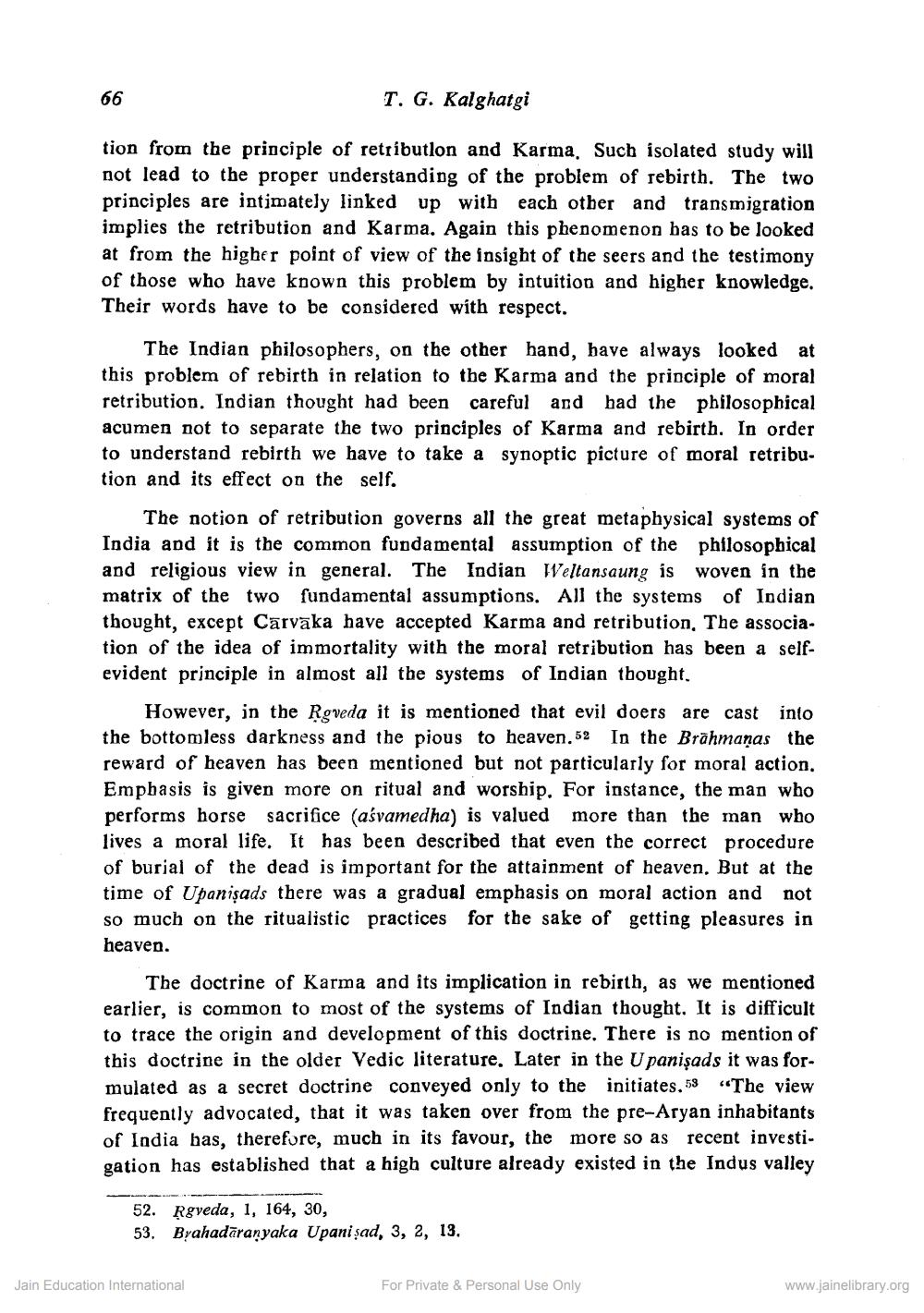________________
66
T. G. Kalghatgi
tion from the principle of retributlon and Karma. Such isolated study will not lead to the proper understanding of the problem of rebirth. The two principles are intimately linked up with each other and transmigration implies the retribution and Karma. Again this phenomenon has to be looked at from the higher point of view of the insight of the seers and the testimony of those who have known this problem by intuition and higher knowledge. Their words have to be considered with respect.
The Indian philosophers, on the other hand, have always looked at this problem of rebirth in relation to the Karma and the principle of moral retribution. Indian thought had been careful and had the philosophical acumen not to separate the two principles of Karma and rebirth. In order to understand rebirth we have to take a synoptic picture of moral retribution and its effect on the self.
The notion of retribution governs all the great metaphysical systems of India and it is the common fundamental assumption of the philosophical and religious view in general. The Indian Weltansaung is woven in the matrix of the two fundamental assumptions. All the systems of Indian thought, except Cārvāka have accepted Karma and retribution. The associa. tion of the idea of immortality with the moral retribution has been a selfevident principle in almost all the systems of Indian thought.
However, in the Rgveda it is mentioned that evil doers are cast into the bottomless darkness and the pious to heaven.52 In the Brāhmanas the reward of heaven has been mentioned but not particularly for moral action. Emphasis is given more on ritual and worship. For instance, the man who performs horse sacrifice (aśvamedha) is valued more than the man who lives a moral life. It has been described that even the correct procedure of burial of the dead is important for the attainment of heaven. But at the time of Upanişads there was a gradual emphasis on moral action and not so much on the ritualistic practices for the sake of getting pleasures in heaven.
The doctrine of Karma and its implication in rebirth, as we mentioned earlier, is common to most of the systems of Indian thought. It is difficult to trace the origin and development of this doctrine. There is no mention of this doctrine in the older Vedic literature. Later in the Upanişads it was formulated as a secret doctrine conveyed only to the initiates.53 "The view frequently advocated, that it was taken over from the pre-Aryan inhabitants of India has, therefore, much in its favour, the more so as recent investi. gation has established that a high culture already existed in the Indus valley
52. Řgveda, 1, 164, 30, 53. Byahadaranyaka Upani şad, 3, 2, 13.
Jain Education International
For Private & Personal Use Only
www.jainelibrary.org




